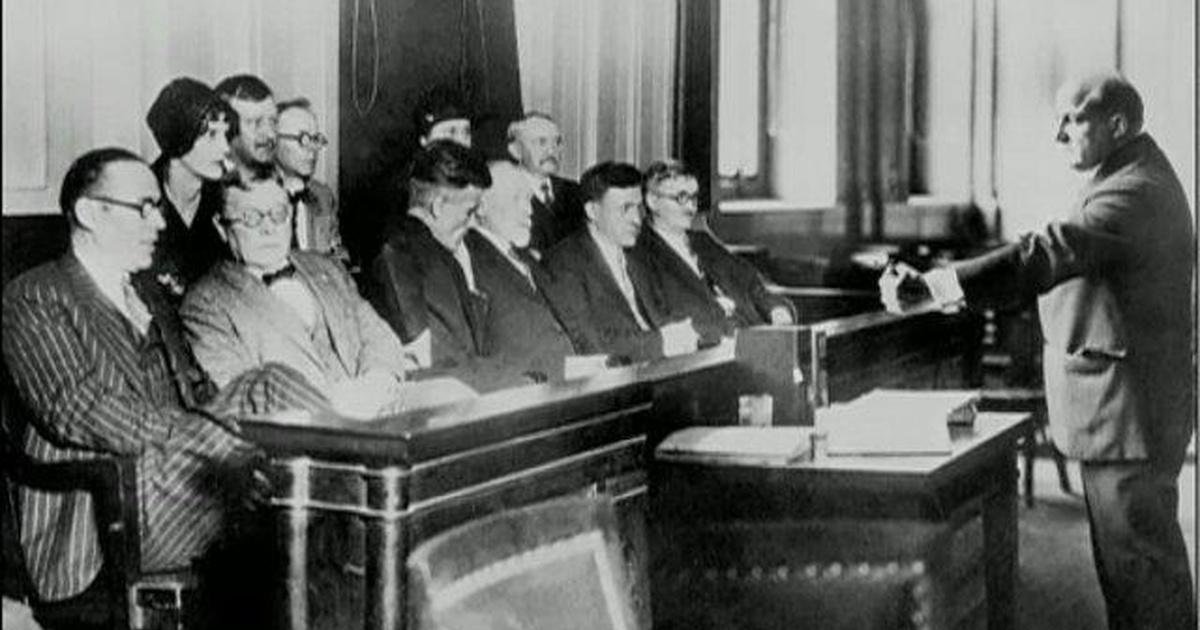The Life and Death of George Remus - King of the Bootleggers
The life, rise and fall of one of prohibitions most notorious bootleggers George Remus. Dubbed the King of Bootleggers, Pioneer of temporary insanity and inspiration for F. Scott Fitzgeralds iconic lavish Character Jay Gatsby from “The Great Gatsby”
If you prefer to sit back, rest your eyes and listen to the story of George Remus, check out the Nightcap Podcast episode I made to coincide with this article where I re-tell the story of George Remus and his rise to bootlegging fame.
Nightcap Podcast: EP3. King of the Bootleggers - The Story of George Remus
You can also view this episode on all the below mediums as well as most places you prefer to view your podcasts.
For those who prefer a good read, here is the full story of George Remus.
George Remus - The early days
George Remus was born in Germany, 1878. Whilst a child his family moves to America. They briefly moved around before finally settling in Chicago in the late 1880s.
1892 - Now aged 14, a young George Remus begins working for his uncle's pharmacy.
For the next 10 years he built a humble life for himself. Studying to earn his pharmacists license, marrying and starting a family. By 1899 after earning his pharmacists license, George purchased his uncle's pharmacy.
Eager to expand his knowledge, at the same time as becoming a full time pharmacist, he was also studying law. Completing a three-year course in just 18 months and by 1900 George Remus was admitted to the Illinois bar.
The same year George and his wife Lillian would welcome their only child into the world. Romola. Romola who interestingly enough would find fame in her own right by becoming the first actress to portray Dorothy on-screen in the Wizard of Oz.
The 1900’s - Raise to Notoriety
During the 1900s, Arguments for prohibition began to mount. Different states across the country begin to enforce prohibition by banning the sale of alcohol. In fact, by 1909 two-thirds of Chicagos precincts would ban the sale of Alcohol.
Which saw the early days of bootleggers. People would distribute bourbon throughout Chicago which was brought in from other states.
George, being Chicago based and a certified lawyer, took it on himself to defend these bootleggers who were arrested. During this time George had discovered 2 things. Firstly, these clients of his were making a whole lot of money. It appeared that there was vast amounts of money to be earned in bootlegging. Secondly the reason a lot of these people were caught was the way they thought. These bootleggers were criminals with criminal mindsets. George on the other hand, was an educated man who meticulously thought things out.
George viewed America as the land of opportunity - and this was just his kind of opportunity
1914 George gains national notoriety for his role as defence attorney in the William Cheney Ellis murder trial. It was at this trial that George would pioneer the virtually unheard of “transitory insanity” defence. A precursor to what would be known as “temporary insanity”, his argument worked, Ellis was given a light sentence and George’s creative defence would go on to be an influential part of American law.
Prohibition is in the Air
1918 The Volstead Act is passed. This is the act which would outline prohibition. In 1920 the whole of America would go into Prohibition. George gets to work studying the Volstead act back to front. Searching for loopholes. Which he would find.
There were 2 particular parts of this act that interested George Remus. Firstly, “That nothing in this act shall prohibit the purchase and sale of warehouse receipts covering distilled spirits on deposit in government bonded warehouses.” and secondly “No one shall manufacture, sell, purchase, transport, or prescribe any liquor...except that a person may, without a permit, purchase and use liquor for medicinal purposes.”
Using his pharmaceutical knowledge, George knew physicians prescribing liquor would need to buy it from somewhere. That somewhere would be drug companies George would purchase, or start. His ingenious plan would be to purchase government bonded distilleries and legally deliver large quantities of his bourbon to his own drug companies - then hijack his own shipments
Cincinnati Empire
Most bootlegging empires revolved around Chicago, a place George had no intention of starting his empire. Chicago was full of Gangsters like Al-Capone. Starting an empire there would cause more issues than its worth.
George discovers that 80% of the entire country's bonded whiskey is within a 3 mile radius of Cincinnati. A perfect place to execute his genius plan. He leaves his old life behind in Chicago along with his wife Lillian and moves to Cincinnati, remarrying to a woman named Imogene Holmes.
Whilst in Cincinnati, George begins acquiring drug companies, working with federal associates in Washing D.C that he had worked with during his time as an attorney to help gain him access to all the permits he would need to purchase and withdraw bourbon from distilleries he would go on to own.
To further solidify his plan, he creates his own trucking company which would be used to deliver the bourbon from the distilleries to his drug companies. To further this plan, he purchased a Cincinnati farm called Death Valley where he would store and distribute the stolen bourbon.
At this point, He know owns distilleries where he can legally sell bourbon to drug companies. He also owns the drug companies and has them purchase the whiskey. The whisky would be delivered using a trucking company, which he also owns, but along the way, the trucks would be unfortunately hijacked with all the bourbon stolen. To which he also owned the Hijackers.
They would then take the “stolen” whiskey to the Death Valley farm which was surrounded with armed guards, whiskey runners and a payroll of 3,000 workers. This operation solidified George’s reputation as the king of bootleggers.
But he also had another name, the kind of payoffs. Due to the fact he handed out huge payoffs to law enforcement heads, politicians and prohibition agents to turn a blind eye from Death Valley farm.
Remus built his empire with intellect, rather than systematic violence, and didn't even drink his own supply as he himself was a non-drinker who just happened to see an opportunity.
Raise of George Remus - The Real Life Great Gatsby
During this time, George is one of the most wealthy “businessmen” in America. He’s making more money than he knows what to do with it and spends it quite generously.
He purchased a mansion named “The marble palace” furnished with expensive artwork, sculptures and a huge Grecian indoor swimming pool. George would host extravagant parties from this house where it was almost as if prohibition didn’t exist. You had high society mingling with politicians and law enforcements all drinking vast amounts of American whiskey and champagne. Dancers, Flapper girls and musicians all performed.
His most infamous party was his 1921 New Year’s Eve party where every man who attended were gifted diamond stick pins and all the women were given new Pontiac cars. And this generosity was not just for his parties. George was known for his large contributions to charities and known for handing out 100 dollar bills to children.
It was only 3 years later in 1924 when F. Scott Fitzgerald published the iconic book, The Great Gatsby. The lavish main character, Jay Gatsby, was reportedly inspired by George, who met with Fitzgerald a number of times at the Seelbach Hotel in Louisville, KY.
Fall of George Remus
No one in Cinncinati would touch George. Not out of fear of violence but fear of losing huge payoffs. Chicago agents didn’t have that to worry about.
In later October 1921 Prohibition agents from Chicago raided Georges Death Valley farm. arresting George and many others in his circle. Cincinnati’s chief Prohibition agent, James Flora, reluctantly participated. Why was he reluctant? He was on George’s payroll.
George is convicted and sentenced to two years in the Atlanta Federal Penitentiary. Fittingly, that evening, 125 cases of George’s bourbon, in crates marked “Potatoes”, were seized in Toledo, OH.
Things turn Sour
Whilst in prison, George Remus befriended another inmate. Who he eventually told all about his money. How his operation was ready to kick start back up once he is released due to a large portion of his money hidden across Cincinnati and the fact that his wife, Imogene Holmes, had control over his money.
That inmate, a friend of Georges, was none other than Franklin Dodge, an undercover prohibition agent who was sent to the prison to find out more information on George Remus and his assets.
Rather than tell his bosses about the new information, he instead quit his job and resigned from the force and started an affair with Imogene. The both of them began selling George's assets and liquidating his businesses. They even sold his Fleischmann distillery where the vast amount of bourbon was created, only giving Remus $100 of the multimillion-dollar empire.
Knowing that George was about to be released from Prison and would understandably be extremely peed off. They tried to get George deported back to Germany. When that didn’t work, they hired a hitman for $15,000 to murder George.
The assassin didn’t follow through due to fear of Franklin double crossing him. Instead, he told Remus the whole story.
In late 1927, Imogene Holmes filed for divorce from Remus. On the way to court, on October 6, 1927, for the finalization of the divorce, Remus had his driver chase them down through Eden Park in Cincinnati, finally forcing them off the road. Remus jumped out gunned down his wife Imogene in front of a crowd of onlookers.
Knowing he was legally done for, he turned himself in and decided to defend himself in court. After all. He was a professional lawyer who had gotten people in the past for this exact same thing.
Just like when he first gained notoriety back in the early 1900s defending William Cheney with his pioneered temporary insanity plea, Remus did the same thing for himself. Claiming to have temporarily lost his mind. The jury deliberated only nineteen minutes before acquitting him. The State of Ohio committed Remus to an insane asylum which he was freed from in just 7 months.
George Remus defending himself in court.
George remus (left) in court with his daughter Romola (middle).
End days
After his release from the institution, he was an informal tutor to another well known Cincinnati lawyer, William Foster Hopkins, for a period of about six years. George Remus later moved to Covington, Kentucky (across the Ohio River from Cincinnati), where he lived modestly the next 20 years without incident. He married for a third time to his long-time secretary Blanche Watson. Remus ran a small contracting firm, Washington Contracting, until he suffered a stroke in August 1950. For the next two years, he lived in a boarding house in Covington in the care of a nurse. Remus died on January 20, 1952 at the age of 73.
Oh hey, if you enjoy this story, you may also enjoy some of the other stories I’ve covered in the world of drinks on Nightcap










In this Episode of Nightcap - The podcast retelling stories of myth and murder, lies and legends in the world of drinks, I will be retelling the fascinating stories of Cleopatra and the drinking culture of modern day and ancient Egypt.